Discover the captivating history behind the English-speaking world’s first library
- Written by Thom Bamford
- Last updated 3 months ago
- City of Manchester, Cornerstone, History
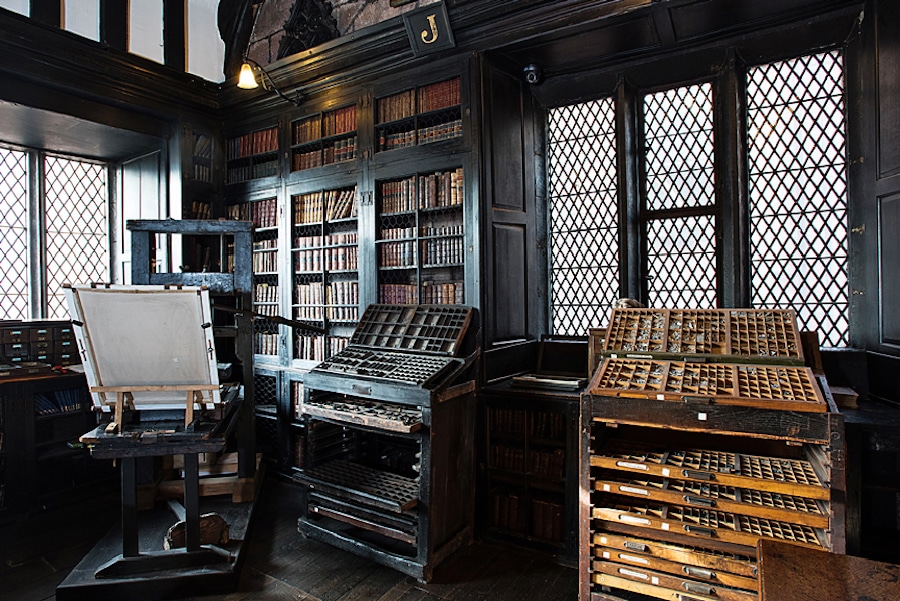
In Manchester’s Medieval quarter lies a true gem of cultural and historical significance: Chetham’s Library.
Established in 1653, it holds the distinction of being the oldest public library in the English-speaking world. For over 350 years, its doors have remained open to all – ‘for the use of schollars and others well affected’, as its founder Humphrey Chetham decreed.
This remarkable institution continues to inspire visitors and scholars alike with its rich history, stunning medieval architecture, and unparalleled collections.
Chetham’s Library
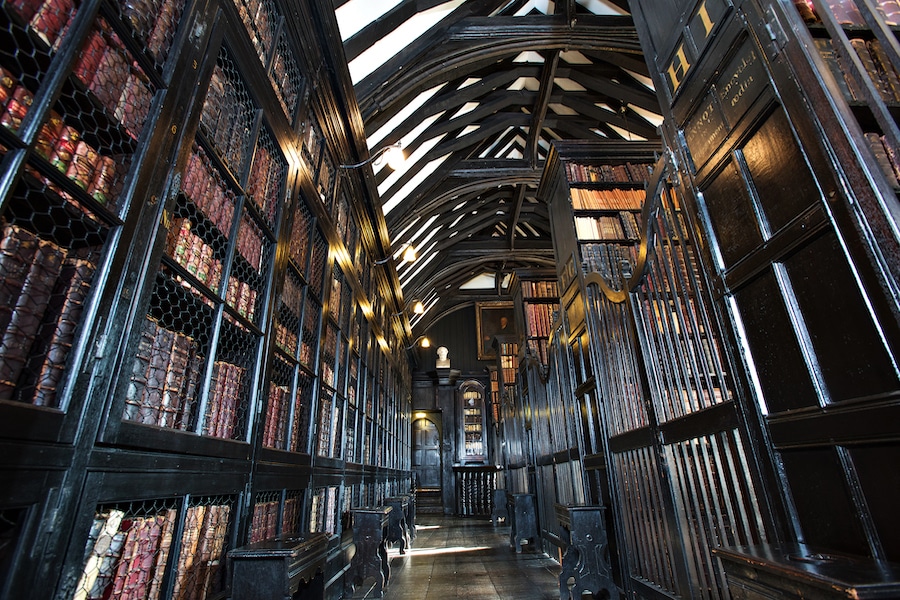
Chetham’s Library owes its existence to the foresight and philanthropy of Humphrey Chetham (1580–1653), a prosperous textile merchant, banker, and landowner. A man of great wealth but modest aspirations for public office, Chetham was driven by a desire to combat ignorance and alleviate poverty.
His charitable vision included the creation of a school for forty poor boys and the establishment of a library that would rival the great collections of Oxford and Cambridge.
Chetham’s concern for education was matched by his meticulous planning; he ensured that his legacy would endure by appointing twenty-four governors, or feoffees, to oversee his charitable endeavours.
The library’s historic home
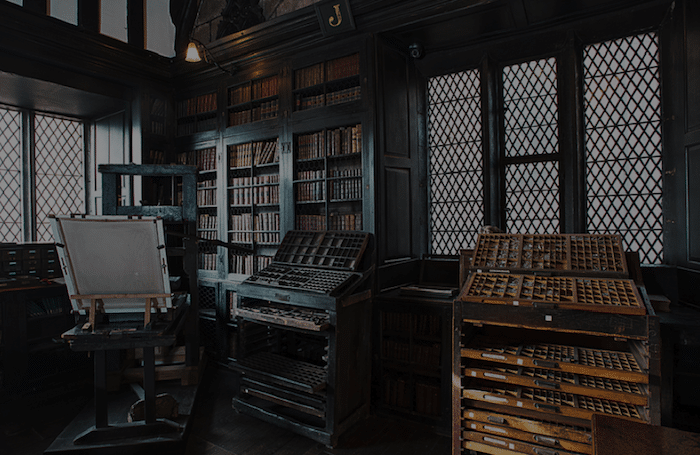
The Library’s setting is as captivating as its collection. Housed within the medieval College House, which dates back to 1421, the complex was originally built to accommodate a college of priests.
With its sandstone walls, quarried locally and transported by river barge, the building boasts a wealth of architectural marvels, from its grand hall to the warden’s lodgings and domestic facilities.
The survival of such a complete medieval structure is a rare feat, especially given its turbulent history. Over the centuries, it served as a residence for the Stanley family, endured periods of neglect, and even functioned as a prison and arsenal during the Civil War.
Yet, thanks to Chetham’s vision and the dedication of local craftsmen, the building was lovingly restored and repurposed as a sanctuary for learning.
A collection of national importance
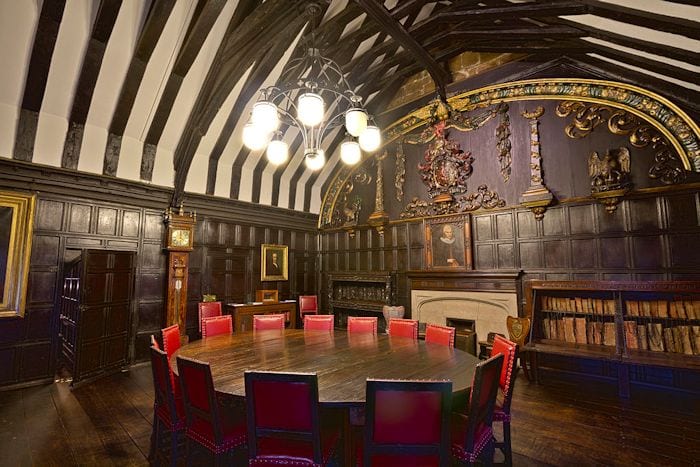
From its inception, Chetham’s Library has been a treasure trove of knowledge. In August 1655, the Library began acquiring books, guided by the founders’ ambitious goal to cover the full range of human understanding. Early purchases included works on theology, law, history, medicine, and science, as well as an impressive array of manuscripts.
Many of the books were shipped from London, packed into barrels to protect them on their journey north. Over time, the collection has expanded to include early printed books, manuscript diaries, letters, deeds, ephemera, prints, paintings, and glass lantern slides.
Today, the Library specialises in the history and topography of Greater Manchester and Lancashire, making it an essential resource for researchers and historians.
Stories That shaped the world
Chetham’s Library is a place with huge historic interest. Among its most famous visitors were Karl Marx and Friedrich Engels, who met here to discuss the revolutionary ideas that would later shape global politics.
It is also steeped in legend: the enigmatic Dr John Dee, the renowned mathematician and occultist, is said to have conducted experiments here and even summoned the Devil himself. These stories, along with countless others, add to the Library’s mystique and draw visitors from around the world.
Chained books and unchained minds
In its early days, the Library’s books were chained to oak presses to prevent theft, a practice common at the time. Readers perched on carved wooden stools, their hands gripping the ‘S’-shaped handles as they delved into the volumes before them.
Over time, the Library adapted to the needs of its patrons. By the mid-eighteenth century, the practice of chaining was abandoned in favour of locked gates, and material was brought to a dedicated Reading Room for study. Remarkably, the original system of alphabetically labelling each press remains in use today, seamlessly integrated with modern electronic catalogues.
Humphrey Chetham’s dream of a library open to all has stood the test of time. Its strength lies not only in its historic collection but also in its enduring commitment to accessibility and education. As an independent charity, Chetham’s Library continues to thrive, attracting scholars, history enthusiasts, and tourists who marvel at its storied past and atmospheric surroundings. Guided tours reveal fascinating tales of its former inhabitants and visitors, while the serene reading rooms provide a haven for quiet study and reflection.
Booking a tour of Chetham’s Library
Chetham’s is a living piece of history, a place where the past and present converge. Whether you are captivated by its architectural splendour, intrigued by its revolutionary connections, or simply in search of a quiet corner to read, Chetham’s Library promises an experience unlike any other.
You can book a tour of Chetham’s by clicking here
- This article was last updated 3 months ago.
- It was first published on 20 January 2025 and is subject to be updated from time to time. Please refresh or return to see the latest version.
Did we miss something? Let us know: press@ilovemanchester.com
Want to be the first to receive all the latest news stories, what’s on and events from the heart of Manchester? Sign up here.
Manchester is a successful city, but many people suffer. I Love Manchester helps raise awareness and funds to help improve the lives and prospects of people across Greater Manchester – and we can’t do it without your help. So please support us with what you can so we can continue to spread the love. Thank you in advance!
An email you’ll love. Subscribe to our newsletter to get the latest news stories delivered direct to your inbox.
Got a story worth sharing?
What’s the story? We are all ears when it comes to positive news and inspiring stories. You can send story ideas to press@ilovemanchester.com
While we can’t guarantee to publish everything, we will always consider any enquiry or idea that promotes:
- Independent new openings
- Human interest
- Not-for-profit organisations
- Community Interest Companies (CiCs) and projects
- Charities and charitable initiatives
- Affordability and offers saving people over 20%
For anything else, don’t hesitate to get in touch with us about advertorials (from £350+VAT) and advertising opportunities: advertise@ilovemanchester.com

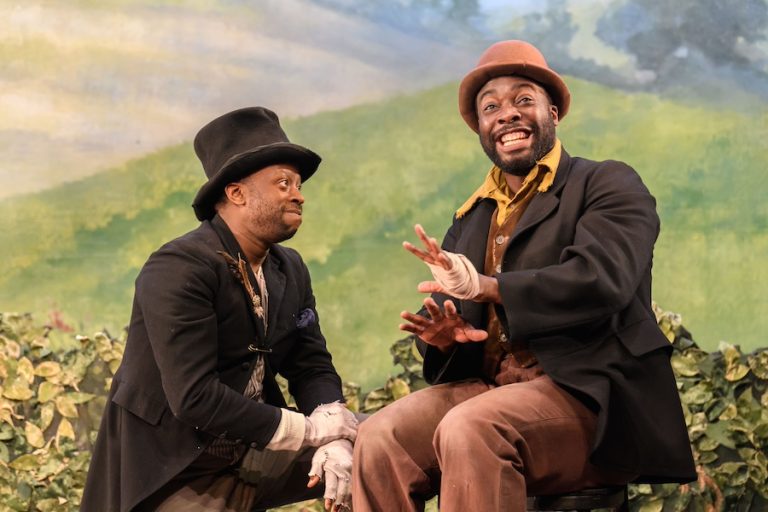
Review: Tambo & Bones at HOME is ‘ambitious, bold, gutsy…. and terrific’

Review: JB Shorts 26 at 53two is ‘a five-star showcase of northern talent’

















